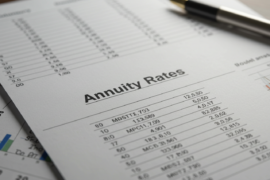This article may contain references to products or services from one or more of our advertisers or partners. We may receive compensation when you click on links to those products or services. Nonetheless, our opinions are our own.
The information presented in this article is accurate to the best of our knowledge at the time of publication. However, information is subject to change, and no guarantees are made about the continued accuracy or completeness of this content after its publication date.
For many aspiring homeowners, the dream of owning a home can feel out of reach due to financial limitations, credit challenges, or insufficient savings for a down payment. Traditional mortgage requirements may seem difficult to meet, leaving potential buyers renting while hoping to invest in a permanent property. Rent-to-own arrangements offer a potential bridge by allowing tenants to rent while gaining the option to purchase the home later. This type of agreement can help individuals who need time to improve their finances before qualifying for a mortgage. Rent-to-own agreements combine aspects of renting and buying, which requires careful review of terms, fees, and market conditions. Knowing how these contracts function, the benefits they provide, and the risks involved is important before making a commitment. When approached thoughtfully, rent-to-own can provide a structured path toward homeownership while offering financial flexibility and time to prepare for long-term investment.
- What Is a Rent-to-Own Agreement
- Terms to Examine in Rent-to-Own Contracts
- Benefits of Rent-to-Own Arrangements
- Risks and Challenges
- Practical Recommendations for Rent-to-Own Buyers
- Rent-to-Own Compared to Traditional Home Buying
- Conclusion
- Frequently Asked Questions About Rent-to-Own Housing
- Recommended Reads
What Is a Rent-to-Own Agreement
 A rent-to-own agreement, sometimes called a lease-option or lease-to-own contract, allows a tenant to rent a property with the option to purchase it later. Unlike standard leases, rent-to-own agreements include two main parts
A rent-to-own agreement, sometimes called a lease-option or lease-to-own contract, allows a tenant to rent a property with the option to purchase it later. Unlike standard leases, rent-to-own agreements include two main parts
| Component | Description |
|---|---|
| Rental Agreement | Specifies monthly rent, lease duration, and tenant responsibilities |
| Purchase Option | Grants the right to buy the property at a fixed price or based on market value, often with rent credits applied toward the purchase price |
This arrangement is particularly suitable for individuals who want to buy a home but cannot immediately qualify for a mortgage due to credit issues, income limitations, or insufficient savings. It allows prospective homeowners to live in the property while preparing for eventual ownership.
Terms to Examine in Rent-to-Own Contracts
Before entering a rent-to-own agreement, tenants should know the specific terms, which vary depending on the seller and location
| Term | Meaning |
|---|---|
| Option Fee | A non-refundable upfront fee that grants the right to purchase the home later. Typically 1 to 5 percent of the property price |
| Rent Credits | A portion of monthly rent that may be applied toward the home purchase, acting as a form of savings |
| Purchase Price | Can be fixed at the start of the lease or determined later based on market conditions |
| Lease Period | Specifies the rental duration before the purchase option must be used, often 1 to 3 years |
| Maintenance Responsibilities | Some agreements require tenants to handle repairs or upkeep, unlike standard rentals |
Reviewing these terms carefully ensures tenants understand financial commitments, potential risks, and benefits.
Who Can Benefit from Rent-to-Own
Rent-to-own agreements work best for individuals in transitional financial situations. They provide time to stabilize finances and prepare for mortgage approval
Financial Readiness
For tenants unable to secure a mortgage immediately, rent-to-own allows time to improve credit, reduce debt, and save for a down payment. By the time the option to purchase arises, buyers may be better positioned to obtain favorable mortgage terms
Location Commitment
This arrangement suits individuals confident in staying in a location long term. Leaving early may result in losing option fees and rent credits, so evaluating personal and career plans is important
Market Conditions
Rent-to-own can be advantageous in markets where property values rise quickly. Locking in a purchase price early may lead to financial benefit. In declining markets, fixed prices may create challenges.
Benefits of Rent-to-Own Arrangements
Rent-to-own agreements offer several advantages, especially for those with limited access to traditional financing
| Benefit | How It Helps |
|---|---|
| Equity Potential | Rent credits contribute toward the purchase price, allowing tenants to gradually build equity |
| Credit Recovery | Provides time for tenants with poor credit to improve scores before applying for a mortgage |
| Property Familiarity | Living in the home allows assessment of property condition, neighborhood, and long-term suitability |
| Financial Flexibility | Offers the option to walk away from the deal without foreclosure or major debt, although fees may be lost |
These benefits make rent-to-own an attractive option for individuals seeking a patient approach to homeownership.
Voted "Best Overall Budgeting App" by Forbes and WSJ
Monarch Money helps you budget, track spending, set goals, and plan your financial future—all in one app.
Get 50% OFF your first year with code MONARCHVIP
Risks and Challenges
Rent-to-own arrangements carry risks that tenants should consider carefully
Financial Exposure
Option fees and rent premiums can be significant. If a tenant cannot purchase the home, these payments are usually non-refundable
Property Value Changes
Fixed purchase prices can be risky. If the housing market declines, buyers may overpay relative to current values. Sellers may lose if prices rise rapidly
Contract Complexity
Rent-to-own contracts may include maintenance responsibilities not typical in standard rentals. Misunderstandings can lead to unanticipated costs
Limited Legal Protections
Unlike mortgages, rent-to-own contracts are private agreements and may lack legal protections. Clear terms reviewed by a professional are recommended.
Practical Recommendations for Rent-to-Own Buyers
Careful planning can reduce risk and improve the likelihood of successful homeownership
| Recommendation | Description |
|---|---|
| Conduct Research | Investigate the property, neighborhood trends, and any legal or financial encumbrances |
| Create a Detailed Budget | Include rent, option fees, down payment, taxes, insurance, and maintenance costs |
| Hire Legal Counsel | Have a real estate attorney review the contract to clarify responsibilities and rights |
| Plan for Exit Scenarios | Know what happens if purchasing is not possible, including which fees or credits may be lost |
These steps help tenants make informed decisions and reduce potential problems.
Rent-to-Own Compared to Traditional Home Buying
| Feature | Rent-to-Own | Traditional Mortgage |
|---|---|---|
| Upfront Costs | Option fee and higher rent | Down payment of 3 to 20 percent |
| Credit Requirements | Flexible, allows time to improve | Must meet lender standards |
| Flexibility | Can walk away if purchase fails | Committed to mortgage payments |
| Equity Build-Up | Partial through rent credits | Full through mortgage payments |
| Legal Protections | Limited, depends on contract | Extensive, regulated by law |
Rent-to-own provides flexibility and time for preparation, while traditional mortgages provide structured equity growth and legal protections.
Conclusion
Rent-to-own can help individuals move toward homeownership while improving financial stability or credit. It allows tenants to live in a property while preparing for future purchase. Success depends on reviewing contracts carefully, planning finances, and understanding market trends. Proper planning and legal guidance increase the likelihood that rent-to-own will support the move toward full homeownership.
Frequently Asked Questions About Rent-to-Own Housing
What is the difference between rent-to-own and a standard lease
Rent-to-own includes the option to purchase, while a standard lease is purely rental with no purchase rights
Can rent payments apply toward the purchase price
Yes, many agreements include rent credits that go toward the purchase price, but it depends on the contract
Are option fees refundable
Option fees are usually non-refundable even if the tenant does not buy
How long do rent-to-own agreements last
Most agreements last 1 to 3 years, but terms vary
Is rent-to-own suitable for people with poor credit
Yes, it provides time to improve credit before applying for a mortgage
What happens if I cannot purchase the home at the end of the lease
You may lose your option fee and rent credits depending on the contract. Planning for this scenario is important

Reviewed and edited by Albert Fang.
See a typo or want to suggest an edit/revision to the content? Use the contact us form to provide feedback.
At FangWallet, we value editorial integrity and open collaboration in curating quality content for readers to enjoy. Much appreciated for the assist.
Did you like our article and find it insightful? We encourage sharing the article link with family and friends to benefit as well - better yet, sharing on social media. Thank you for the support! 🍉
Article Title: Rent-to-Own Homes: A Practical Path to Homeownership in 2025
https://fangwallet.com/2025/09/09/rent-to-own-homes-a-practical-path-to-homeownership-in-2025/The FangWallet Promise
FangWallet is an editorially independent resource - founded on breaking down challenging financial concepts for anyone to understand since 2014. While we adhere to editorial integrity, note that this post may contain references to products from our partners.
The FangWallet promise is always to have your best interest in mind and be transparent and honest about the financial picture.
Become an Insider

Subscribe to get a free daily budget planner printable to help get your money on track!
Make passive money the right way. No spam.
Editorial Disclaimer: The editorial content on this page is not provided by any of the companies mentioned. The opinions expressed here are the author's alone.
The content of this website is for informational purposes only and does not represent investment advice, or an offer or solicitation to buy or sell any security, investment, or product. Investors are encouraged to do their own due diligence, and, if necessary, consult professional advising before making any investment decisions. Investing involves a high degree of risk, and financial losses may occur including the potential loss of principal.
Source Citation References:
+ Inspo
There are no additional citations or references to note for this article at this time.












































